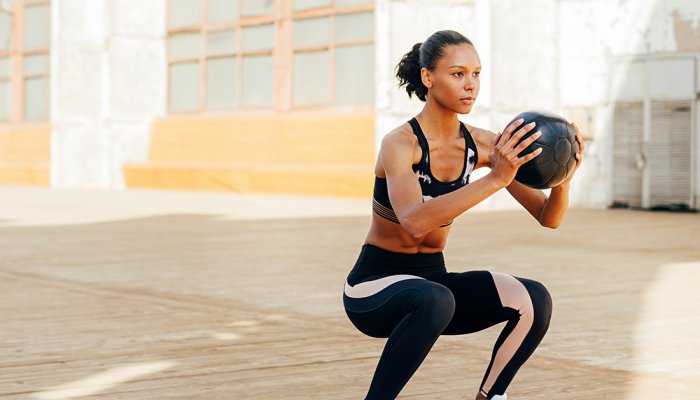

Quivering caused by dehydration, however, isn’t something you should push through. “If you’re shaking due to dehydration, stop exercising, consume water or an electrolyte beverage, and seek medical help if necessary,” says Goodtree. If you’re feeling tired, lightheaded, dizzy, or thirsty, or you have dry skin and lips, muscle cramps, or a headache—common signs3 of dehydration—that’s your cue to pause your workout and replenish any lost fluid.
Although shaking during your workouts isn’t always a red flag, you shouldn’t necessarily strive to quiver, either. “As a fitness professional and personal trainer, I don’t think ‘get my muscles to shake’ is an effective goal,” says Goodtree. Instead, set SMART (Specific, Measurable, Achievable, Relevant, and Time-Bound) goals for your fitness program, she suggests. A person who can’t yet do a full pushup, for example, might set a goal to complete 10 pushups on their toes within two months. “To get there, you might work on your chest press, chest fly, planks, and shoulder mobility,” she recommends. “You also might experience muscle shaking along the way!”








